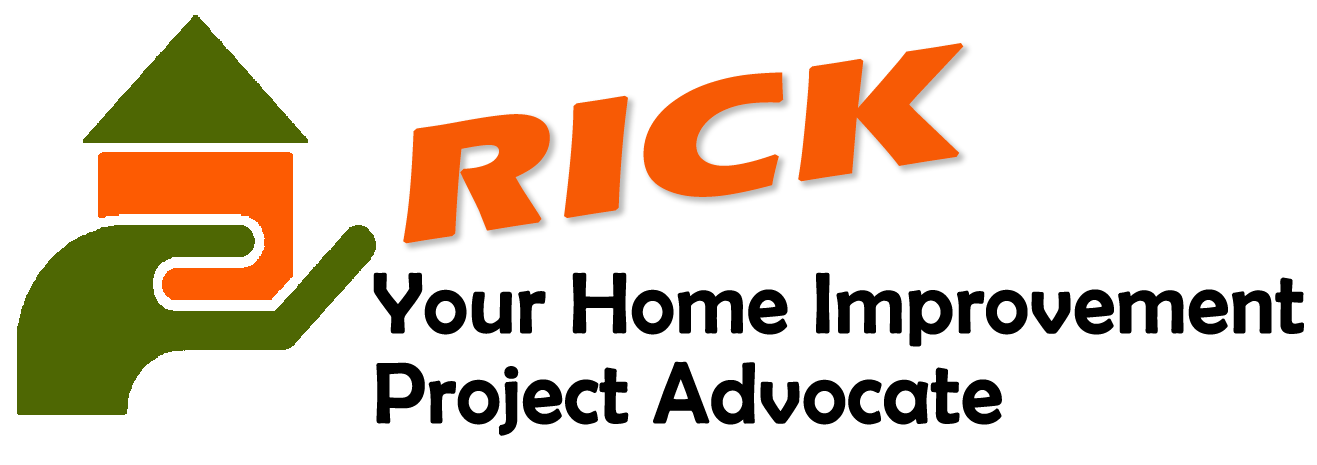Hiring Free Advice
Be carefull when selecting your next tradesperson to do work in your home....
When hiring a tradesperson for home improvement projects, it’s essential to ensure they are properly licensed, insured, and reputable.
I now recommend obtaining at least five quotes before making a decision. With recent changes in immigration enforcement, the labor pool has tightened, leading to higher project costs and longer wait times for qualified tradespeople.
To avoid becoming a victim of price gouging, you need to plan your work well in advance and compare multiple bids. This approach helps you secure the best balance of price, quality, and timing for your project. Start by verifying their credentials through state or local licensing boards, and always check for reviews or testimonials from previous clients. It’s wise to request multiple bids and compare them, as this helps identify inconsistencies in pricing and services offered. At Rick Your Home Improvement Advocate, my goal is to guide homeowners in selecting trustworthy contractors, providing expert advice to ensure your renovation projects are completed to the highest standards.
Below you will find some helpull tips while searching for someone to do work in your home.
✅
1. Verify Their License with the State
- Use the Florida Department of Business & Professional Regulation (DBPR) license search: www.myfloridalicense.com
- Make sure the license is active, in good standing, and matches the type of work when hiring a General Contractor, Electrical, HVAC, Roofing or Plumbing Contractor.
- Confirm their
name and company match the license info.
✅ 2. Check for Proper Insurance
- Ask for proof of general liability insurance and worker's compensation (or a valid exemption).
- When provided with their Insurance information, call the insurance company to confirm the policy is
current and covers your project!
✅ 3. Look Up Complaints or Legal Issues
- Check the DBPR (Department Of Professional Regulation) complaint history. (Click Here)
- Search for lawsuits in your county clerk of court records or by simply typing their name in a search engine.
✅ 4. Request References & Past Work
- Ask for 3-5 recent clients you can contact.
- Visit completed projects if possible.
- Look for before/after that they can prove is their own work.
✅ 8. Google Reviews
- A contractor with only a handful of reviews may be new or hiding something.
- Too many recent 5-star reviews with little detail can be suspicious (possibly fake)`
- Read the 3- & 4- star reviews first.
- These often give the most balanced feedback, both pros and cons.
- See how they respond to negative reviews.
- A professional contractor will reply respectfully and offer solutions. If they argue, blame the customer, or ignore complaints, that’s a red flag. I would prefer that they don't respond to a negative review than a negative reply to a customer.
- Reviews with real project details and pictures are more trustworthy than generic “Great job!” comments.
- Avoid contractors with repeated complaints about delays, poor communication, or bad workmanship.
✅
5. Get Multiple Written Estimates
- Compare at least 5 bids—be wary of prices that are too low.
- A legit contractor will give a detailed written contract with scope of work, materials, payment schedule, and timeline. If they can't provide you with one that includes at the very least scope of the work & materials, walk away!
- If a company doesn't provide an estimate within a day or two, that's a major red flag.
- If it’s already difficult to get a simple estimate, imagine how much harder it will be to get them to show up and do the work on time. Save yourself the headache—avoid them and move on to a more responsive, reliable company.
- Be very cautious with estimates based on measurements. Always take your own measurements (or have someone you trust verify them) to ensure they’re accurate. Too many contractors advertise a low price per square foot, only to inflate the total by adding unnecessary square footage to the estimate. Many of them try to create estimates without visiting your home and more often than not, they have very poor measurements.
- Stay vigilant, double-check, and don’t hesitate to walk away from anyone who seems dishonest or unresponsive.
✅ 6. Upfront Deposits
- Florida law limits the deposit amount before work begins unless the contractor follows special escrow rules.
- A typical schedule is 10–20% upfront, then staged payments after milestones. Anything beyond 20% is a red flag.
- Never, never, never give 50% of the quote upfront for any work, regardless of the type of work!
✅ 7. Ensure They Pull Proper Permits
- You should NOT pull the permit yourself—a licensed contractor must do it. If they say “no permit needed” for major work, that’s a red flag. Permits are pulled for the county to verify that the work was done in accordance with the State Of Florida construction standards. Permits are needed anytime that you build anything from the "ground up", any electrical, plumbing, or HVAC work. PLEASE DON'T SEE PERMITS AS THE COUNTY TRYING TO MAKE MONEY FROM YOU!!!!
✅ 8. Phone Communication
- If a company doesn't list its phone number on their ad, walk away.
- If they do list a number but won’t answer calls or return voicemails and messages, don’t waste your time chasing them. If they can’t communicate before they earn your business, they definitely won’t communicate once they have your money. Move on to a company that values your time and provides clear, reliable communication.
✅ 9. Website
- If a business doesn't have a website, it's a red flag and something to be cautious about.
- A website is an important part of your vetting process—it shows that the company is legitimate, established, and structured with the intent to provide proper customer service and support. Without one, it may indicate a lack of professionalism, stability, or transparency.
✅ 10. Trust Your Gut
- If they pressure you, don't communicate with you in a reasonable amount of time, won’t provide documentation, or refuse a contract,
walk away.
There are other considerations that are important at the time of contracting. Please be aware that the State Of Florida does allow contractors to add what is known as "unforeseen work" change orders, and there is no limit to the price that they can charge you! This is where hiring someone like me comes in handy because I can forecast a lot of the hidden "unforeseen work" and require pricing upfront for any additional work.
Lastly, unlike the estimate where work timelines may not be disclosed, it is critical that you get a well-spelled-out contract that covers all of the workmanship, materials, timelines, payment schedules, and most importantly, design and prep work details particular to any remodeling project. Shortcutting this can come with a lot of frustration and costs as the project begins.







